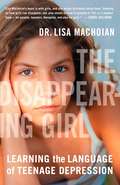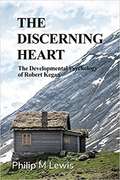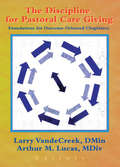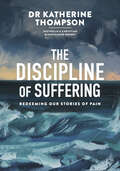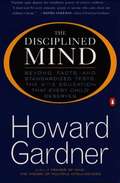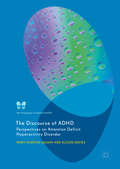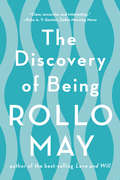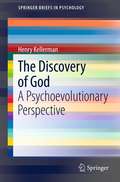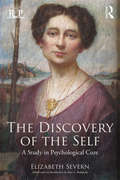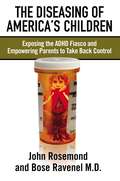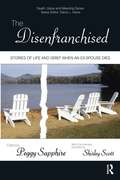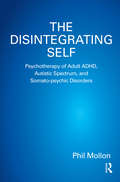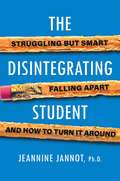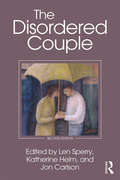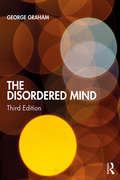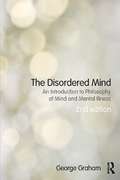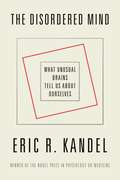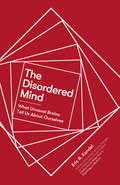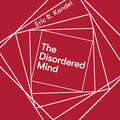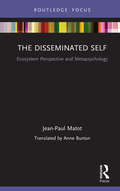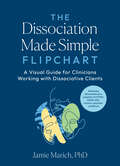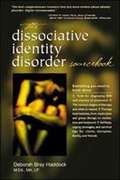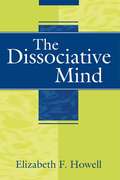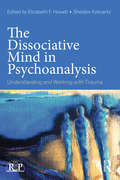- Table View
- List View
The Disappearing Girl
by Lisa MachoianAdults are increasingly concerned about the rising rate of depression in teenage girls and the frequency of alarming behaviors including wild conduct, explosive outbursts, back talking, sexual escapades, drug experimentation, and even cutting, eating disorders, and suicide attempts. The Disappearing Girl, the first book on depression in teenage girls, helps parents understand:* Why silence reflects a girl's desperate wish for inclusion, not isolation* Subtle differences between teen angst and problem behavior* Vulnerabilities in dating, friendships, school, and families* How, if untreated, girls will carry feelings of helplessness, anger, and depression into adulthood Dr. Machoian also offers conversation topics to help girls navigate mixed messages, develop their identity, make healthy decisions, and build resilience that will empower them throughout life, as well as helping parents manage their own frustration. "This is a hopeful book-for parents, teachers, therapists, and also for girls. "-Carol Gilligan, author of In a Different Voice "This insightful and important book is a must read for all those relating to girls. "-Rachel Simmons, author of Odd Girl Out
The Discerning Heart: The Developmental Psychology of Robert Kegan
by Joyce Rothschild Louise Ktainen Philip M. LewisThis small book is about how, if we are fortunate, we get smarter as we grow older. Smarter not in the sense that our IQ score rises, but smarter in a much more important sense. This book is about the growth of human understanding, a kind of understanding that enables us to see both ourselves and others more clearly and, in the process, leads us to feel more deeply. Its focus is a remarkable new theory of the development of the self by Harvard psychologist Robert Kegan. The ideas contained in this book will enable you to view yourself, others, and the world through new eyes. It will put your experience of living in the world in motion and, I hope, make you both more discerning and thereby more vulnerable to our very human struggle of making sense of our lives.
The Discipline Book: For Birth to Age Ten
by William M. SearsParents struggle with what discipline is and how to approach it. Discipline is an integral part of your whole relationship with you child. It can't be pulled out and isolated from the rest of your family's life. At one point we intended the title of this book to be Discipline for Life, because our purpose is to equip children with the tools they will need to succeed in life.
The Discipline for Pastoral Care Giving: Foundations for Outcome Oriented Chaplaincy
by Larry VandeCreek Arthur M. LucasStructure your ministry to start with patients’needs, hopes, and resources and to be clear what difference your ministry can make!Hospital chaplains value who they are and what they do as contributions to patients’and families’healing and well-being. And they are continually stretching to enhance their ministries. Hospital administrators and other professionals on the care teams, however, often need help to grasp those same values in outcome oriented, observable, documentable, changes-for-the-better terms. The Discipline for Pastoral Care Giving: Foundations for Outcome Oriented Chaplaincy offers a powerful new paradigm for enhancing supportive, effective spiritual care for patients and families as well as communicating substantive outcomes to leaders and clinicians alike. This is all the more important in these times when every possible resource must be well used for the good of our patients and their families.By evaluating the pastoral care you offer, you can become more aware of the discrete skills you exercise in the assessment, planning, intervention, and reflection process. Such evaluation efforts highlight the discrete differences excellent spiritual care makes. This can help you track contributions you are making in terms of the patient's healing and well-being. Having a sound, replicable way to make the process more conscious also helps you communicate your assessment, strategies, and contributions more clearly to other care team members. Furthermore, consistently using The Discipline over time will enable you to discover patterns of spiritual dynamics in how people live with different health care challenges in their lives. These patterns translate into valuable insights as your care for others.The process discussed in The Discipline for Pastoral Care Giving calls on the chaplain to: identify the patient's spiritual needs, hopes, and resources construct a patient profile through identifying the individual's sense of the holy, sense of meaning, sense of hope, and sense of community design the desired outcome(s) you hope your care will contribute--for example, a person who has suffered a spinal cord injury integrates the effects of their injury in their sense of identity and meaning, a person living with cystic fibrosis healthfully grieves the loss of others in the CF community, a patient 'disabled’by the absence of her support community regains use of her personal resources for coping and self-care develop and share a plan for the patient's spiritual care choose interventions (which may range from facilitating a life review, to compassionate confrontation, to reading Scripture, to active listening, to arranging a family care conference) measure outcomes, identifying and communicating the difference your care has made in terms of the patient's healing and well-beingThe Discipline for Pastoral Care Giving offers case studies, personal experiences, helpful figures and charts, and suggestions for dealing with patients experiencing unique, complex health care challenges, including adults living with cystic fibrosis and violent victims of violence. The wise advice and practical suggestions in this book will help you recognize and document the solid value of your hospital ministry.
The Discipline of Suffering: Redeeming Our Stories of Pain
by Katherine ThompsonFrom the author of the bestseller Christ-Centred Mindfulness, a transformative book that tackles the faulty stories we tell ourselves during times of pain and suffering.Katherine Thompson shows how suffering can be a spiritual discipline, fostering growth, healing and a deeper faith in God. Her book provides a safe space to explore the difficult questions raised by suffering while encouraging us to confront personal challenges rather than avoid them.The Discipline of Suffering offers practical strategies, real-life stories and useful skills to help reconstruct broken lives, equipping readers to navigate through difficult times.Whether you seek healing, resilience or a renewed sense of purpose, The Discipline of Suffering is your guide to redeeming your story and finding meaning amidst adversity.
The Disciplined Mind: Beyond Facts Standardized Tests K 12 Educ That Every Child Deserves
by Howard Gardner<P>Howard Gardner's concept of multiple intelligences has been hailed as perhaps the most profound insight into education since the work of Jerome Bruner, Jean Piaget, and, even earlier, John Dewey.<P> Now in The Disciplined Mind, Gardner pulls together the threads of his previous works in a major new synthesis aimed at parents, educators, and the general public alike.<P> The Disciplined Mind looks beyond such parochial issues as charters, vouchers, unions, and affirmative action in order to explore the larger questions of what an educated person should be and how such an education can be achieved for all students.<P> Gardner eloquently argues that the purpose of K-12 education should be to enhance students' deep understanding of truth (and falsity), beauty (and ugliness), and goodness (and evil) as defined by their various cultures. With this stance, Gardner transforms the tired debate between "traditionalists" and "progressives.".
The Discourse of ADHD: Perspectives On Attention Deficit Hyperactivity Disorder (The Language of Mental Health)
by Alison Davies Mary Horton-SalwayThis book explores the discourse of attention deficit hyperactivity disorder (ADHD), one of the most debated mental health categories attributed to children and adults across the globe. The authors trace the origins, development and representation of ADHD to demonstrate how the category is produced through competing explanatory theories and processes of scientific, professional and lay discourse. Starting with the idea that medical categories are as much a product of cultural meaning, social processes and models of medicine as they are of scientific fact, this book utilises a range of perspectives from within critical discursive psychology to approach this topic. The authors discuss historical construction, media representation, parents’ accounts of family life, and the personal experience of children and adults to demonstrate how the construction of social identity and cultural stereotypes are embedded in the meaning of ADHD. They explore the origins of ADHD and how biological and psychosocial explanations of the mental health category have been produced, circulated, debated and resisted within a culture of ‘Othering’, and the discourse of blame.
The Discovery of Being: Writings in Existential Psychology
by Rollo May"Clear, accurate, and interesting. There is no better short introduction to the existential approach to psychology." --Dallas Morning News The brilliant psychologist Rollo May was a major force in existential psychology. Here, he brings together the ideas of Kierkegaard, Nietzsche, and other great thinkers to offer insights into its ideas and techniques. He pays particular attention to the causes of loneliness and isolation and to our search to find new and firm moorings in order to move toward a future where responsibility, creativity, and love can play a role.
The Discovery of God
by Henry KellermanThe debate between theist and atheist is an old one and has recently become a highly publicized one. There are some well known proponents of arguments on both sides. To provide a different perspective this book takes a psychoanalytically based evolutionary view, presenting an entirely original theoretical concept. It introduces an epigenetic component to the discussion of God/no God within the context of evolutionary processes at the point where a thinking brain appears -- a cerebral cortex characteristic of homosapien. Therefore, it joins evolutionary phenomena with psychological realities for survival and safety, for empowerment and the absence of disempowerment. Research is cited to show that such instinctive survival behavior involves several prototypical behavioral categories relevant to all organisms from amoeba to man. Freud, Darwin, Gould, and the major historical figures of the God/no God debate are included throughout, and the point is made that environmental conditions can produce biological effects and this is the essence of the proposed epigenetical context of the debate. Therefore, this volume concerns itself with exploring the question of whether there is a God-gene or whether God is discovered epigentically in a psycho/evolutionary context. In either case, this book does not argue for the existence or non-existence of God. Rather, it introduces a new dimension to the debate -- a psycho/evolutionary one.
The Discovery of the Self: A Study in Psychological Cure (Relational Perspectives Book Series)
by Elizabeth SevernElizabeth Severn, known as "R.N." in Sandor Ferenczi’s Clinical Diary, was Ferenczi’s analysand for eight years, the patient with whom he conducted his controversial experiment in mutual analysis, and a psychoanalyst in her own right who had a transformative influence on his work. The Discovery of the Self is the distillation of that experience and allows us to hear the voice of one of the most important patients in the history of psychoanalysis. However, Freud branded Severn Ferenczi’s "evil genius" and her name does not appear in Ernest Jones’s biography, so she has remained largely unknown until now. This book is a reissue of Severn’s landmark work of 1933, together with an introduction by Peter L. Rudnytsky that sets out the unrecognized importance of her thinking both for the development of psychoanalysis and for contemporary theory. Inspired by the realization that Severn has embedded disguised case histories both of herself and of Ferenczi, as well as of her daughter Margaret, Rudnytsky shows how The Discovery of the Self contains "the other side of the story" of mutual analysis and is thus an indispensable companion volume to the Clinical Diary. A full partner in Ferenczi’s rehabilitation of trauma theory and champion of the view that the analyst must participate in the patient’s reliving of past experiences, Severn emerges as the most profound conduit for Ferenczi’s legacy in the United States, if not in the entire world. Lacking any institutional credentials and once completely marginalized, Elizabeth Severn can at long last be given her due as a formidable psychoanalyst. Newly available for the first time in more than eighty years, The Discovery of the Self is simultaneously an engaging introduction to psychotherapy that will appeal to general readers as well as a sophisticated text to be savored by psychoanalytic scholars and clinicians as a "prequel" to the works of Heinz Kohut and a neglected classic of relational psychoanalysis.
The Diseasing of America's Children: Exposing the ADHD Fiasco and Empowering Parents to Take Back Control
by John Rosemond Bose RavenelHow parents, teachers, and even professionals are being deceived by the "ADHD Establishment" regarding ADHD and other childhood behavior disorders and the drugs used to treat them. The issue of diagnosing children with behavioral diseases that do not conform to a scientific definition of disease, and then medicating them is a scandal ready to erupt. In The Diseasing of America's Children, popular family psychologist, speaker and best-selling author John Rosemond joins with pediatrician Dr. Bose Ravenel to uncover the fiction and fallacy behind attention-deficit/hyperactivity disorder (ADHD), oppositional defiant disorder (ODD), early-onset biopolar disorder (EOBD), and the drugs prescribed to treat them. Rosemond and Ravenel will: reveal the pseudo-science behind these diagnoses; explain how parents, teachers, and even professionals are deceived; expose the short- and long-term dangers behavioral drugs pose to children; discuss how America's schools are unwittingly feeding the diagnostic beast; reveal the simple, common sense truth behind these behavior problems and give parents a practical program for curing these problems without drugs or dependence on professionals.
The Disenfranchised: Stories of Life and Grief When an Ex-Spouse Dies (Death, Value and Meaning Series)
by Peggy Sapphire Shirley ScottThe Disenfranchised: Stories of Life and Grief When an Ex-Spouse Dies offers an unprecedented anthology of never-before-published, first-person life histories by ex-spouses whose grief has endured as disenfranchised: socially unacknowledged, untold, and unrecognised. Each story of disenfranchised grief is fiercely honest and courageously made public. This anthology has no parallels in current texts, academic literature or mainstream publications. Contributors present personal histories, revealing that the dimensions of disenfranchised grief are as individual as the writers who have endured this neglected aspect of grief and bereavement. In many narratives, the healing power of their creative processes through art and poetry is further revealed. The anthology is compiled and edited by Peggy Sapphire, MS (Guidance and Counseling), a writer living in Vermont. Over the span of five years, through phone conversations and written communications, Ms. Sapphire established trusting relationships with the contributors, who, though choosing to submit their work, often struggled with reluctance, even dread, at revisiting previously private events in their lives and finally committing their stories to paper, and ultimately to publication. Each narrative is accompanied by a clinical commentary, written by Shirley Scott, MS, certified Thanatologist, which provides readers, whether academic, practitioner, student, or lay, with reflections on the issues and patterns of disenfranchised grief, as reflected by each narrative. Included in each commentary are bibliographic references for further and advanced study. The contributors represent an extraordinary range of professional achievements and academic credentials--well-published writers, poets, working artists, educators, academics, mental health practitioners, and health professionals.
The Disintegrating Self: Psychotherapy of Adult ADHD, Autistic Spectrum, and Somato-psychic Disorders
by Phil MollonMany psychotherapy clients have (undiagnosed) traits within the ADHD and autistic spectrums - two constellations of the "mistuned brain" that often overlap. The essence of ADHD is emotional dysregulation, and the sufferer displays enhanced needs for egosupportive responses from others, as he or she struggles with storms of affect, especially rage and anxiety, impulsivity, deficits in executive functioning, and attentional problems. It is often a hidden core within what is otherwise perceived as borderline or emotionally unstable personality disorder. Autistic spectrum traits, which often coexist with ADHD, are similarly brain-based, associated with intense but unintegrated experience, inflexibility, and a range of efforts to cope with potentially overwhelming emotions and anxieties. The author, a psychoanalyst and psychotherapist with forty years clinical experience, presents a wide-ranging discussion of these disorders, exploring psychoanalytic, neurobiological and psycho-energetic perspectives. He describes how the classical Freudian model, combined with Kohut's self-psychology, provides a sound basis for effective therapy with clients whose self is under continual threat of disintegration.
The Disintegrating Student: Struggling but Smart, Falling Apart, and How to Turn It Around
by Jeannine JannotJeannine Jannot, Ph.D. draws on twenty years of experience in this empowering must-read for every parent of a struggling child, complete with effective strategies and tools to help students reach their full potential in school and life. The must-read guide to getting your child back on track You know your child is bright. Until recently, school was fine—easy, even. Yet suddenly, your son or daughter is struggling academically and emotionally. Falling grades, scattered work, assignments unfinished or not turned in, outbursts and upheaval . . . what is going on? And how can you help? The truth is that many smart students reach a point where they feel overwhelmed and stressed out. As their grades drop, so does their self-esteem, and this combination of external and internal pressures can seem insurmountable. To make matters worse, students feel unable to ask for or accept help. In The Disintegrating Student, Jeannine Jannot, Ph.D. draws on her decades of experience as a school psychologist, educator, and student coach to explain the reasons for this increasingly common phenomenon. Dr. Jannot identifies the skill deficits and counterproductive behaviors of disintegrating students, and provides a complete toolbox of techniques and strategies to combat them. Effective and science-based, these tools address the specific challenges faced by students and their parents, including: * organization * time management * stress * study habits * sleep * mindset * and screens. Learn how to build trust, motivate, and encourage responsibility and problem solving. Empowering and engaging, The Disintegrating Student will show you how to help your child embrace what&’s going right, address what&’s going wrong, and develop the skills needed for success in school and in life.&“Students who &“care so much that when they start to struggle academically... [it] paralyzes them into inaction&” can be helped, posits school psychologist Jannot in her approachable debut. Jannot&’s style is casual and buoyant… As much a pep talk as a set of strategies, this will hit the spot for parents looking for ways to get their children out of an academic rut.&” —Publishers Weekly
The Disordered Couple
by Jon Carlson Len SperryThe Disordered Couple, Second Edition, focuses on couples with psychiatric disorders and/or relational disorders that significantly impact their relationship, mental health, and well-being. It is the first and only book to provide mental health professionals and trainees with cutting-edge, culturally sensitive, and evidence-based clinical strategies for working effectively with disordered couples. While maintaining its focus on disordered couples, this second edition adds several new features and considers key trends that have impacted the structure of couples and families since the original edition appeared, including the influence of social media and technology, legalization of same-sex marriage, increases in the availability of Internet pornography, and changes in societal norms regarding romantic relationships. The disorders covered reflect revisions to the DSM-5 and both psychiatric disorders and relational disorders, and the book highlights clinically relevant and culturally sensitive intervention practices for working with a wide variety of disordered couples. Chapters also include a section on specific multicultural implications for the type of couple discussed. With proven strategies for effectively assessing, conceptualizing, and implementing treatment with disordered couples, this book is an essential reference for marital, clinical, counseling, and psychiatry professionals, as well as trainees in these areas. The Disordered Couple, Second Edition, will be of great assistance to mental health professionals in providing disordered couples with the most up-to-date, culturally sensitive, and relevant clinical care.
The Disordered Mind
by George GrahamThe Disordered Mind, Third Edition is a wide-ranging introduction to the philosophy of mental disorder or illness. It examines and explains, from a philosophical standpoint, what mental disorder is: its reality, causes, consequences, compassionate treatment, and more. Revised and updated throughout, the third edition includes enhanced discussions of the distinction between mental health and illness, selfhood and delusions about the self, impairments of basic psychological capacities in mental disorder and the distinct roles that mental causation and neural mechanisms play in mental illness. The book is organized around four questions: What is a mental disorder or illness? What makes mental disorder something bad? What are various mental disorders and what do they tell us about the mind? What is mental health and how may it be restored? Numerous disorders are discussed including: addiction, agoraphobia, delusion, depression, dissociative identity disorder, obsession-compulsion, schizophrenia, and religious scrupulosity, among others. Several neurological disorders are examined. Various problems associated with DSM-5 and with psychiatric diagnosis are explored. Including chapter summaries and suggestions for further reading, The Disordered Mind is an ideal text for courses in philosophy and should appeal to not just philosophers, but to readers in cognitive science, psychology, psychiatry and related mental health professions.
The Disordered Mind: An Introduction to Philosophy of Mind and Mental Illness
by George GrahamThe Disordered Mind: An Introduction to Philosophy of Mind and Mental Illness, second edition examines and explains, from a philosophical standpoint, what mental disorder is: its reality, causes, consequences, and more. It is also an outstanding introduction to philosophy of mind from the perspective of mental disorder. Revised and updated throughout, this second edition includes new discussions of grief and psychopathy, the problems of the psychophysical basis of disorder, the nature of selfhood, and clarification of the relation between rationality and mental disorder. Each chapter explores a central question or problem about mental disorder, including: what is mental disorder and can it be distinguished from neurological disorder? what roles should reference to psychological, cultural, and social factors play in the medical/scientific understanding of mental disorder? what makes mental disorders undesirable? Are they diseases? mental disorder and the mind-body problem is mental disorder a breakdown of rationality? What is a rational mind? addiction, responsibility and compulsion ethical dilemmas posed by mental disorder, including questions of dignity and self-respect. Each topic is clearly explained and placed in a clinical and philosophical context. Mental disorders discussed include clinical depression, dissociative identity disorder, anxiety, religious delusions, and paranoia. Several non-mental neurological disorders that possess psychological symptoms are also examined, including Alzheimer's disease, Down's syndrome, and Tourette's syndrome. Containing chapter summaries and suggestions for further reading at the end of each chapter, The Disordered Mind, second edition is a superb introduction to the philosophy of mental disorder for students of philosophy, psychology, psychiatry, and related mental health professions.
The Disordered Mind: What Unusual Brains Tell Us About Ourselves
by Eric R. KandelEric R. Kandel, the winner of the Nobel Prize in Physiology or Medicine for his foundational research into memory storage in the brain, is one of the pioneers of modern brain science. His work continues to shape our understanding of how learning and memory work and to break down age-old barriers between the sciences and the arts.In his seminal new book, The Disordered Mind, Kandel draws on a lifetime of pathbreaking research and the work of many other leading neuroscientists to take us on an unusual tour of the brain. He confronts one of the most difficult questions we face: How does our mind, our individual sense of self, emerge from the physical matter of the brain? The brain’s 86 billion neurons communicate with one another through very precise connections. But sometimes those connections are disrupted. The brain processes that give rise to our mind can become disordered, resulting in diseases such as autism, depression, schizophrenia, Parkinson’s, addiction, and post-traumatic stress disorder. While these disruptions bring great suffering, they can also reveal the mysteries of how the brain produces our most fundamental experiences and capabilities—the very nature of what it means to be human. Studies of autism illuminate the neurological foundations of our social instincts; research into depression offers important insights on emotions and the integrity of the self; and paradigm-shifting work on addiction has led to a new understanding of the relationship between pleasure and willpower.By studying disruptions to typical brain functioning and exploring their potential treatments, we will deepen our understanding of thought, feeling, behavior, memory, and creativity. Only then can we grapple with the big question of how billions of neurons generate consciousness itself.
The Disordered Mind: What Unusual Brains Tell Us About Ourselves
by Eric R. KandelNeurological and psychiatric disorders have long been regarded as fundamentally different, depending on whether they appear to affect the brain or the mind. In reality, the brain and the mind are inseparable. Both types of disorder can affect every aspect of brain function: from perception, action, memory and emotion to empathy, social interaction, attention and consciousness. It is easy to view brain disorders as simply tragic or frightening. However, studying where these functions go wrong provides a window on the workings of the healthy brain, and makes it more likely that scientists and clinicians will be able to develop effective treatments or preventative strategies. As individuals, and as a society, we are also able to better empathise with people with disorders of the mind.Building on his pioneering research, Eric R. Kandel illustrates how breakthrough studies of brain disruptions can deepen our understanding of thought, feeling, behaviour, memory and creativity, and perhaps in the future will transform medical care and lead to the development of a unified theory of mind.
The Disordered Mind: What Unusual Brains Tell Us About Ourselves
by Eric R. Kandel'[Kandel's discoveries] have truly changed our understanding of brain function' - Citation for the Nobel Prize in Physiology or Medicine'[Eric Kandel is] one of the preeminent neuroscientists in the world' - Sue Halpern, The New York Review of Books Highly commended at the British Medical Association Book Awards 2019Neurological and psychiatric disorders have long been regarded as fundamentally different, depending on whether they appear to affect the brain or the mind. In reality, the brain and the mind are inseparable. Both types of disorder can affect every aspect of brain function: from perception, action, memory and emotion to empathy, social interaction, attention and consciousness. It is easy to view brain disorders as simply tragic or frightening. However, studying where these functions go wrong provides a window on the workings of the healthy brain, and makes it more likely that scientists and clinicians will be able to develop effective treatments or preventative strategies. As individuals, and as a society, we are also able to better empathise with people with disorders of the mind.Building on his pioneering research, Eric R. Kandel illustrates how breakthrough studies of brain disruptions can deepen our understanding of thought, feeling, behaviour, memory and creativity, and perhaps in the future will transform medical care and lead to the development of a unified theory of mind.
The Disseminated Self: Ecosystem Perspective and Metapsychology (Routledge Focus on Mental Health)
by Jean Paul MatotThe Disseminated Self: Ecosystem Perspective and Metapsychology explores attitudes to climate change and ecological disaster from a psychoanalytic perspective. The author examines the concept of Self, how this can be broad enough to encompass our world as well as just our own bodies and why in some cases this still does not allow us to recognize and act on the threat to the self of climate disaster. Drawing on the work of Freud and Winnicott, and examining the place of destructiveness in psychoanalysis and in everyday life, this books offers a fresh perspective on the climate change debate. This book broadens psychoanalytic thinking in order to address both individual and societal issues facing the ecosystem disaster. It also develops a complementary psychoanalytic perspective in considering the psychotherapeutic process, with emphasis on the mobilizing and integrative effects of topic translations in mental functioning. Finally, it explores heuristic perspectives for multidisciplinary, comprehensive approaches to human phenomena. Translated into English for the first time, The Disseminated Self uniquely draws on the French psychoanalytic traditions, and will be of great interest to the English-speaking psychoanalytic world, as well as any with an interest in climate change and the relationship between Man and the environment.
The Dissociation Made Simple Flipchart: A Visual Guide for Clinicians Working with Dissociative Clients--Addresses dissociation as a symptom of CPTSD, OSDD, DID, and trauma
by Jamie MarichAn essential resource for psychologists, therapists, and clinicians to help clients understand dissociation, make sense of their parts, and visualize depersonalization and derealization—a stigma-free guide from the bestselling author of Dissociation Made Simple An interactive dry-erasable tool for use with clients with dissociative identity disorder (DID), complex trauma, PTSD, and dissociative disorders not otherwise specified (DDNOS)This easy-to-use, dry-erasable flip chart helps therapists break down the basics of dissociation: what it is, why it happens, and how it can be understood—and embraced—as a key part of your client&’s healing journey.The full-color Dissociation Made Simple Flipchart builds on Jamie Marich, PhD&’s, bestselling book and expands your clinical toolkit. Designed to be interactive and user-friendly in-session, it offers easy-to-understand definitions, unique client-centered exercises, flexible language options, and visual activity pages thoughtfully illustrated to meet the needs of clients with different learning styles.Use the Flipchart with clients to:Understand—and go beyond—dissociation and trauma 101Show how trauma acts on the body and brainDemystify terms like &“parts,&” &“system,&” and &“alter&”Build their &“safe-enough&” harborRelate to real-life examples from people with dissociative experiencesUnderstand treatment options and different approaches to dissociative symptomsPractice techniques for grounding, anchoring, settling, and mindfulnessDo interactive activities like mapping their partsChallenge myths, biases, and stigmaLearn about their dissociative tendencies—and discover what helps them return to the present momentFor use with clients with trauma-related dissociation, dissociative identity disorder, DDNOS, and more, the Flipchart is a compassionate and invaluable clinical resource that helps you explore complex concepts with ease—demystifying dissociation and providing a roadmap to understanding, agency, and empowerment.
The Dissociative Identity Disorder Sourcebook (Sourcebooks)
by Deborah HaddockFrom Eve to Sybil to Truddi Chase, the media have long chronicled the lives of people with dissociative identity disorder (DID), formerly known as multiple personality disorder. The Dissociative Identity Disorder Sourcebook serves as a much-needed bridge for communication between the dissociative individual and therapists, family, and friends who also have to learn to deal with the effects of this truly astonishing disorder.
The Dissociative Mind
by Elizabeth F. HowellDrawing on the pioneering work of Janet, Freud, Sullivan, and Fairbairn and making extensive use of recent literature, Elizabeth Howell develops a comprehensive model of the dissociative mind. Dissociation, for her, suffuses everyday life; it is a relationally structured survival strategy that arises out of the mind’s need to allow interaction with frightening but still urgently needed others. For therapists dissociated self-states are among the everyday fare of clinical work and gain expression in dreams, projective identifications, and enactments. Pathological dissociation, on the other hand, results when the psyche is overwhelmed by trauma and signals the collapse of relationality and an addictive clinging to dissociative solutions. Howell examines the relationship of segregated models of attachment, disorganized attachment, mentalization, and defensive exclusion to dissociative processes in general and to particular kinds of dissociative solutions. Enactments are reframed as unconscious procedural ways of being with others that often result in segregated systems of attachment. Clinical phenomena associated with splitting are assigned to a model of “attachment-based dissociation” in which alternating dissociated self-states develop along an axis of relational trauma. Later chapters of the book examine dissociation in relation to pathological narcissism; the creation and reproduction of gender; and psychopathy. Elegant in conception, thoughtful in tone, broad and deep in clinical applications, Howell takes the reader from neurophysiology to attachment theory to the clinical remediation of trauma states to the reality of evil. It provides a masterful overview of a literature that extends forward to the writings of Bromberg, Stern, Ryle, and others. The capstone of contemporary understandings of dissociation in relation to development and psychopathology, The Dissociative Mind will be an adventure and an education for its many clinical readers.
The Dissociative Mind in Psychoanalysis: Understanding and Working With Trauma (Relational Perspectives Book Series)
by Elizabeth F. Howell and Sheldon ItzkowitzThe Dissociative Mind in Psychoanalysis: Understanding and Working With Trauma is an invaluable and cutting edge resource providing the current theory, practice, and research on trauma and dissociation within psychoanalysis. Elizabeth Howell and Sheldon Itzkowitz bring together experts in the field of dissociation and psychoanalysis, providing a comprehensive and forward-looking overview of the current thinking on trauma and dissociation. The volume contains articles on the history of concepts of trauma and dissociation, the linkage of complex trauma and dissociative problems in living, different modalities of treatment and theoretical approaches based on a new understanding of this linkage, as well as reviews of important new research. Overarching all of these is a clear explanation of how pathological dissociation is caused by trauma, and how this affects psychological organization -- concepts which have often been largely misunderstood. The Dissociative Mind in Psychoanalysis will be essential reading for psychoanalysts, psychoanalytically oriented psychotherapists, trauma therapists, and students.
